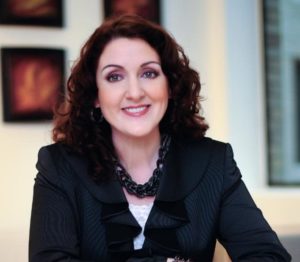When The Chicago School of Professional Psychology launched its new Dallas Campus, it provided the opportunity to form a unique, strategic partnership with Dallas Nursing Institute that has, in many ways, reflected the future of health care in the U.S. and around the world. Now with the upcoming merger between the two institutions, INSIGHT Magazine revisits a conversation with the leaders of both as they explored the concept of integrated health care and the role of higher education in preparing the professionals of tomorrow.
Q: Thank you for speaking with us today. As leaders of your respective institutions, each of you have acknowledged the need for the fields of psychology and nursing to begin moving toward a more interdisciplinary approach. How do you believe they can complement each other for holistic health care?
 Dr. Michele Nealon: When practicing psychology, there is a tendency to focus on the mental health and well-being of a person, while a nurse practitioner will often focus on the various physical conditions or illnesses that have brought a person into their care. Each of these tendencies is insufficient as a form of health care in isolation from one another.
Dr. Michele Nealon: When practicing psychology, there is a tendency to focus on the mental health and well-being of a person, while a nurse practitioner will often focus on the various physical conditions or illnesses that have brought a person into their care. Each of these tendencies is insufficient as a form of health care in isolation from one another.
So, the fields of psychology and nursing can complement each other by beginning to focus more on the interconnectedness between our physical condition, our emotional state, our social and living environments, the choices we make, the thoughts that we have, and our actions as individuals.
 Dr. Gwen Gaston: One of the things I believe is that the body and mind are interdependent. It’s very difficult to separate the two. Although psychology is known for its relation to mental well being, nurses also take courses in psychology because it provides the fundamental behavior knowledge for the nurse to understand a patient’s emotions.
Dr. Gwen Gaston: One of the things I believe is that the body and mind are interdependent. It’s very difficult to separate the two. Although psychology is known for its relation to mental well being, nurses also take courses in psychology because it provides the fundamental behavior knowledge for the nurse to understand a patient’s emotions.
For example, stress raises blood pressure. So a nurse must know a nursing intervention to decrease stressors in order to decrease a patient’s blood pressure.
This is just one example, but both fields must use psychological strategies to advocate for the patient’s physical and mental well-being.
Q: Why do you think there now seems to be increased attention regarding mental health within our health care system? What have you seen change?
Dr. Nealon: We are truly beginning to expand our understanding of the connection between physical and mental health and the extent to which mental health wellness plays a key role in conditions such as depression and anxiety, but also in physical conditions such as cancer, obesity, and diabetes.
We also are acutely aware that the current health care system is neither structured nor expansive enough to meet the true needs of those seeking services.
Gaston: Not at all.
There is also the cost of health care. A lot of people could not afford health insurance, and still can’t. If they can’t afford insurance, then the last thing many people are thinking about is their mental health.
Dr. Nealon: It used to be assumed that our minds and bodies are separate. We know to embrace that the human being is a whole person and must be understood and treated as such.
As a result of this basic acceptance, our system of health care in the U.S. has no choice but to evolve from a focus on treating the body as a machine, with interventions that are concentrated on disconnected parts, to a focus on holistic health and integrating systems of care. This evolution is due, in part, to an explosion of research detailing how our physical and mental health is connected and also how the environments in which we live and the choices we make all come together and impact our general health and wellness.
The integrated health care movement is really about backing up and looking at the whole person rather than just identifying and addressing an isolated symptom or a single diagnosis. It is about dismantling symptom-specific silos that have long prevented us in the past from pursuing a more integrated approach.
Q: You mention integrated health care. How have you each seen this evolve, and what do you see as the next steps that need to be taken?
Gaston: When I think of integration, I think of interprofessional health care. That is collaboration and communication among all various health care professionals. We must all come together and make decisions through collaboration.
Dr. Nealon: Yes, for example, if a person is not eating well it can lead to bone disease, diabetes, cardiac complications, and various organ problems. So, basic matters related to nutrition and diet should involve the interventions of a medical doctor, mental health professional, nutritionist, and even someone who can integrate or provide a case management approach to integrating all of the involved practitioners, so that the individual patient is focused, organized, and not spending time trying to navigate the services and advice of each professional individually.
It is not optional any more to ignore the interconnectedness of mental and physical health and our attention needs to expand beyond practice. We also need to overhaul health care insurance practices and even government policy. Policy and insurance directly influence the care of a patient, including how a patient can access or navigate their way through the health care system.
Gaston: Well said. Additionally, moving forward I believe we need to see more multipurpose clinics, multipurpose outreach centers, and coordinated care instead of physically separated intervention facilities.
I believe that more interprofessional collaboration can, and should, begin within the educational system. We should house schools of psychology, schools of nursing, and osteopathic and medical schools all in the same building where we can have simulations together and learn to treat the patient as a whole. This would allow us to train as a team and learn to communicate and talk with each other. Students should be able to prepare to become integrated health care practitioners within the safe haven of academia, in a place where they can develop the senses and tools necessary to be successful moving forward when they are dealing with a real patient.
Q: That is a good point. Education will definitely play a key role in certain careers evolve in response to more integrated health care. How do you see this changing current education models for these types of careers?
Gaston: Well, in nursing, I believe that embracing technology is a major component. We already use simulations much more frequently than we have done in the past, and there are now online classes available for nurses.
Dr. Nealon: I agree with Dr. Gaston. Students will also need to be trained within and across disciplines, and learn how to speak with multidisciplinary practitioners and teams so that they know how to share information across professions.
Gaston: We also need to consider, specifically in the field of nursing, training our nurses to be leaders. That is one of the things as an undergraduate nursing student you learn very little about. You learn very little about being at the table where decisions are made. However, in health care, nurses are leaders at all times.
So I think we need to start leadership courses in the beginning as an undergraduate. It doesn’t need to be deep, but enough for students to understand certain concepts of leadership.
We also need to incorporate certain areas where they learn how to develop policies and procedures because moving forward that is what our nurses will be doing. Their scope of practice is increasing, and with that increasing scope, we must increase their education.
Dr. Nealon: Yes, our students at The Chicago School of Professional Psychology will go on to careers where they are advocates, leaders running clinics, and so on within an integrated health care setting. As a result, they will need to understand how to build holistic and transdisciplinary goals and institutional strategic planning.
Gaston: In my opinion, whatever the course is, the body is the same. You have one heart. In nursing and psychology we should be treating the person as a whole, so why are we intent on separating the two fields in the classroom? Why don’t we make this an integrated process from the beginning and alter certain curriculum within general education classes before students go on to their specialties?
Thank you both for your time, is there anything more you would like to share about your vision for the future of health care?
Dr. Gaston: Health care is a right. Integrated health care is a must. We must challenge ourselves as professionals to do and be better for our students and future patients throughout the health care system.
Dr. Nealon: We must always remember to think of our patients and clients as people first. Both of our fields are about caring for a person holistically. The more we continue to recognize this and advance our education model to reflect this, the healthier our society will be.
Learn more about the Chicago School
To learn more about Dallas Nursing Institute, visit their website. For more information about a variety of program offerings available at The Chicago School, fill out the form below to request more information.

